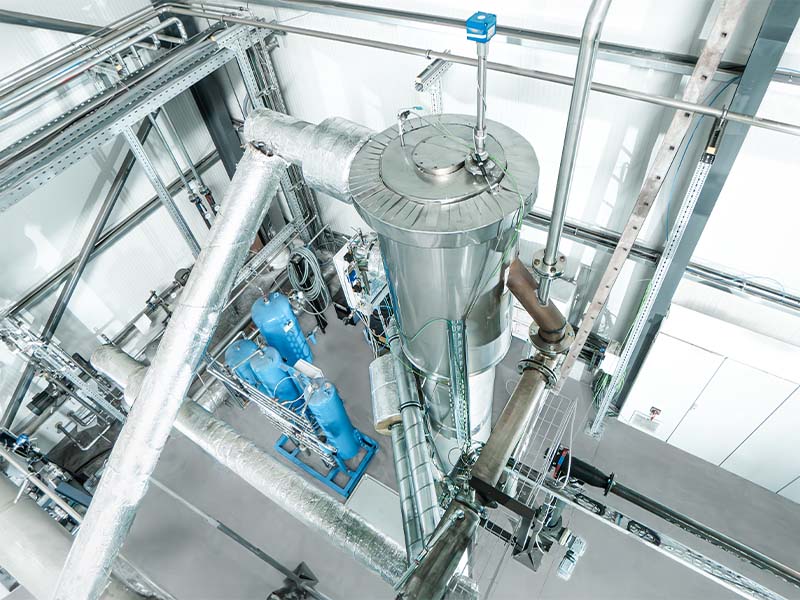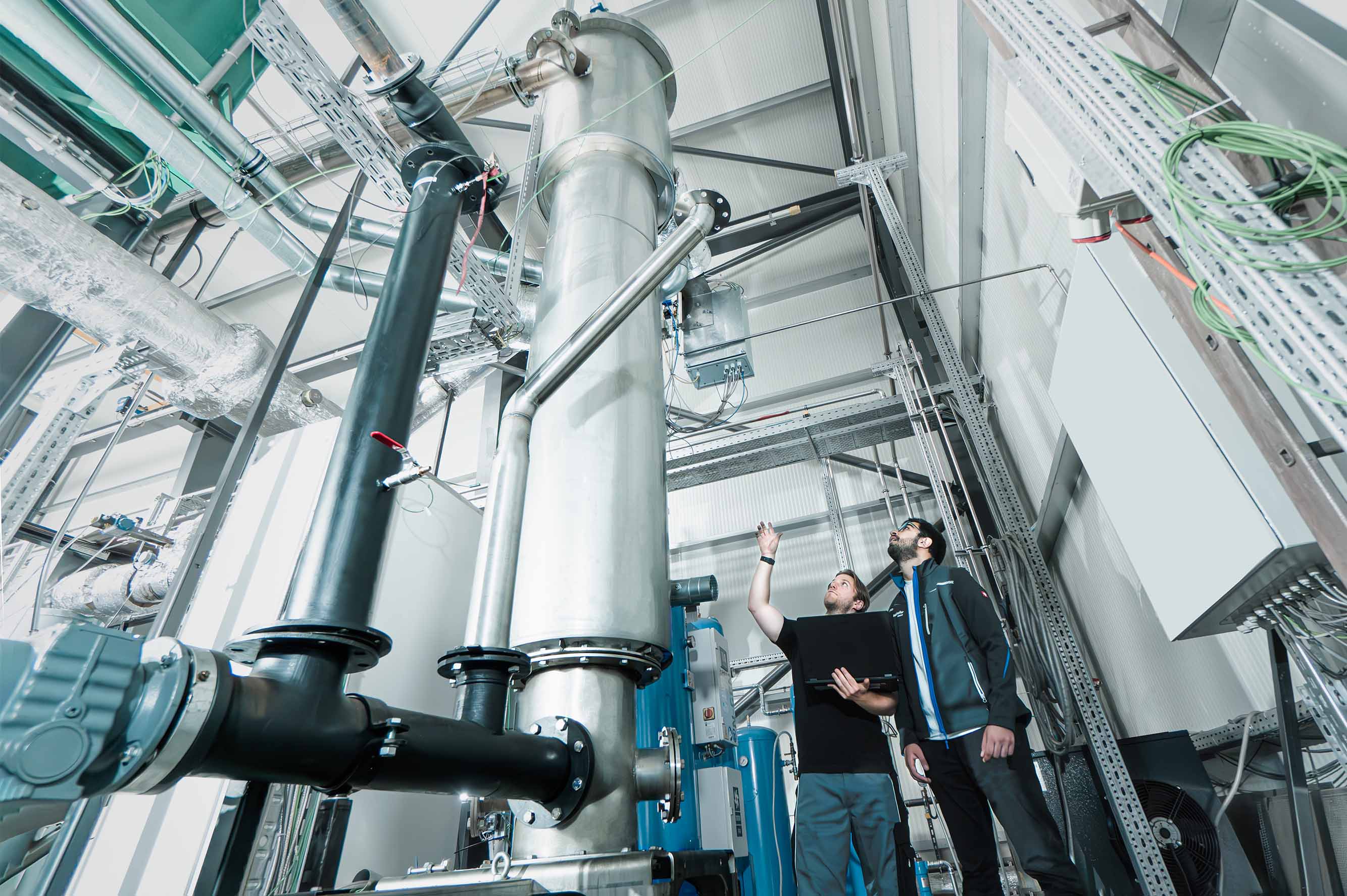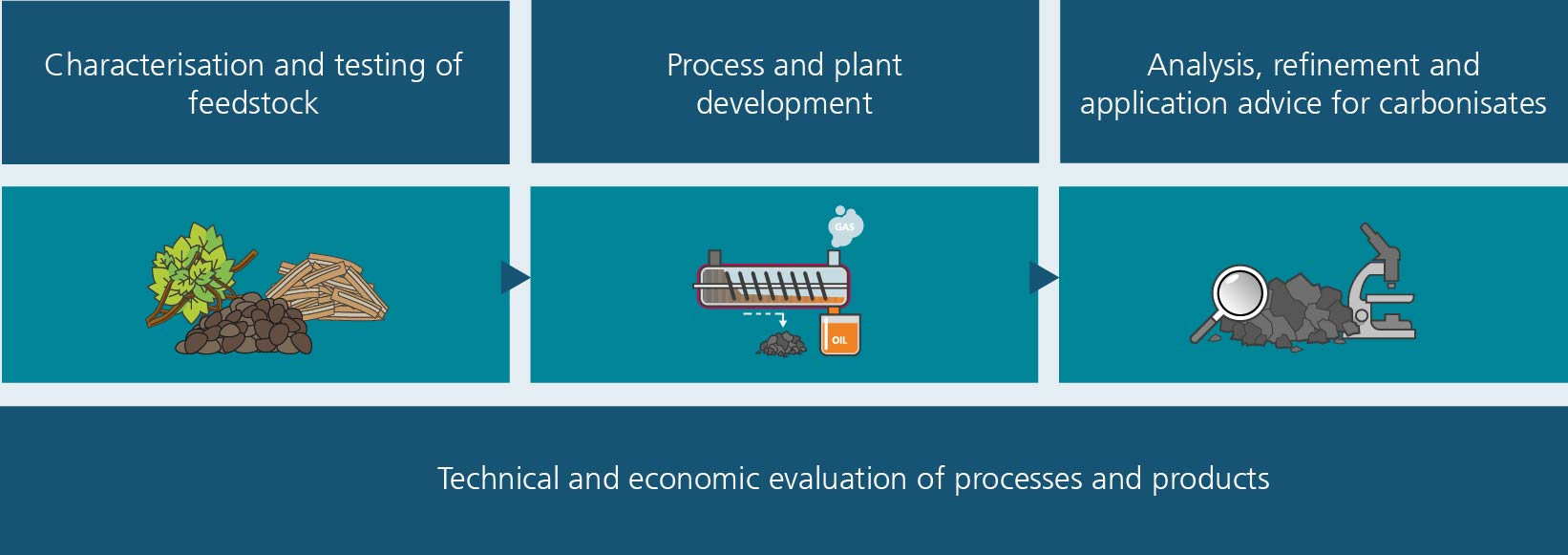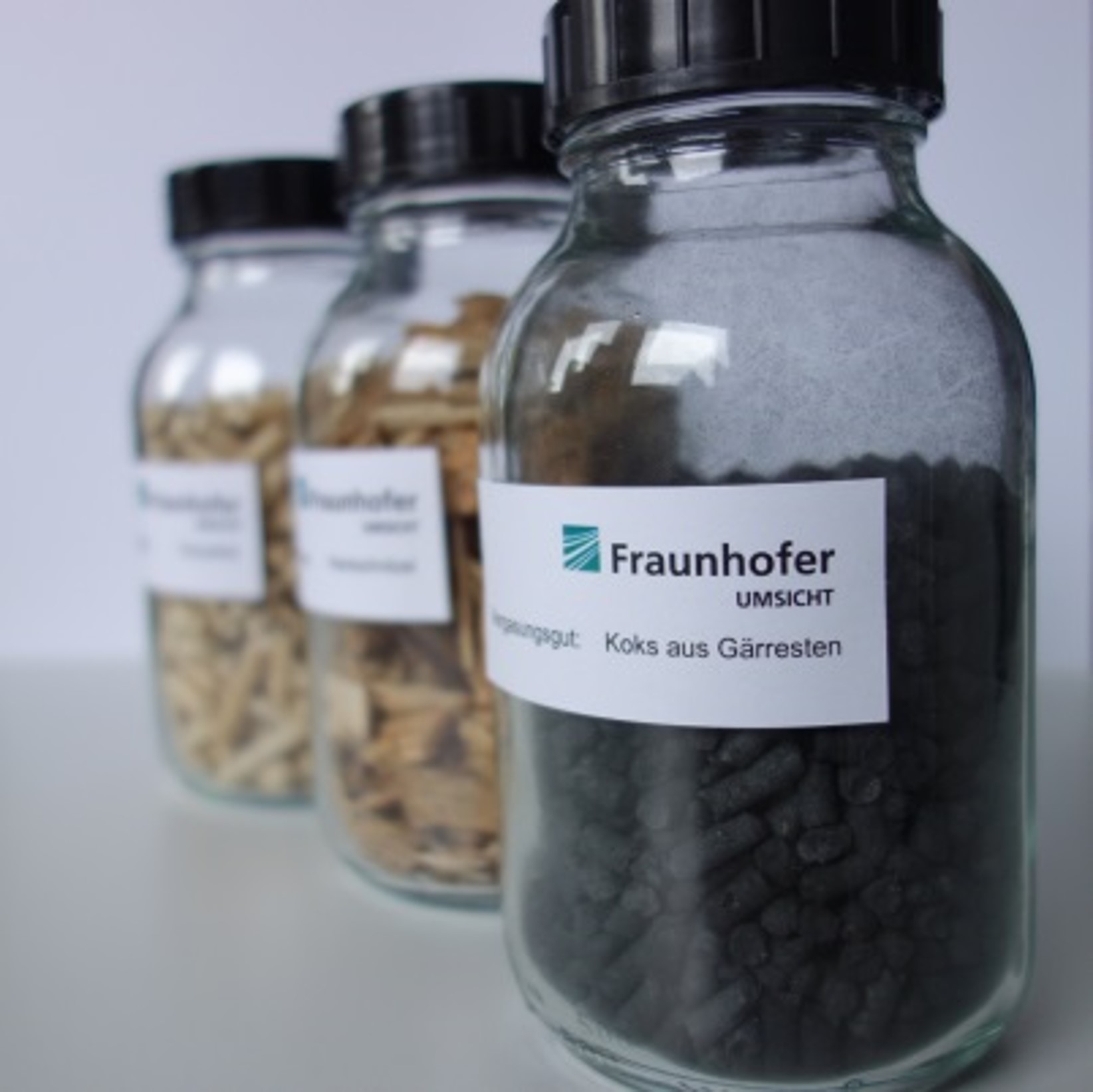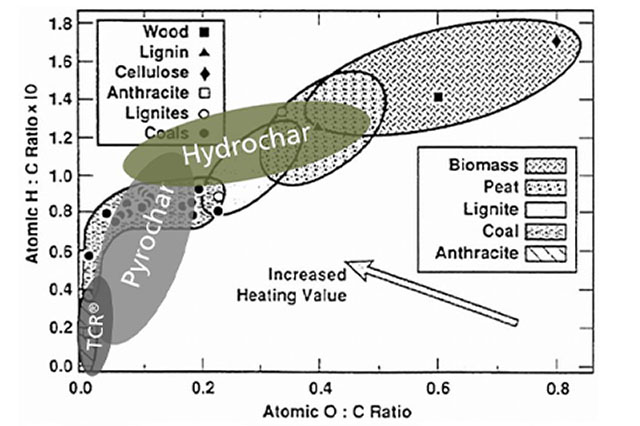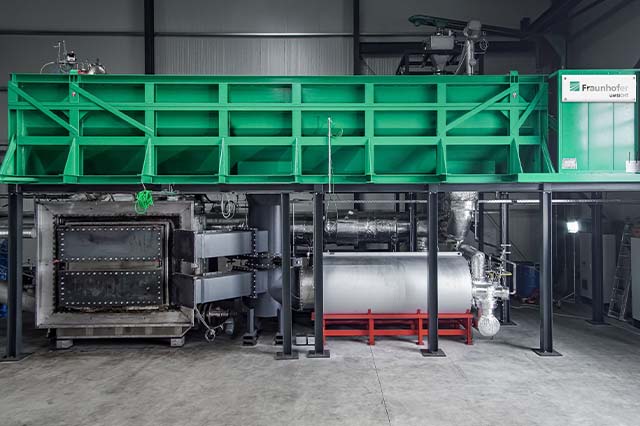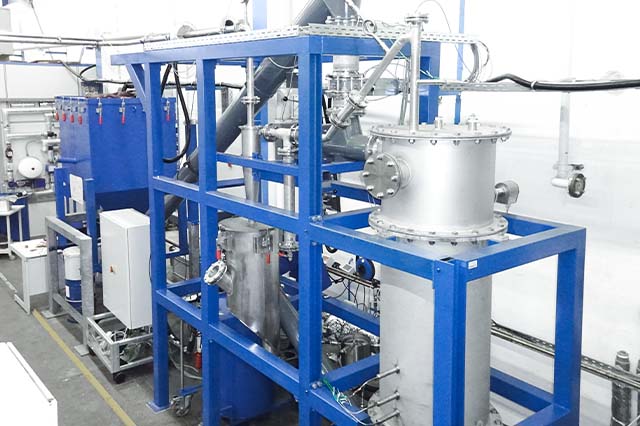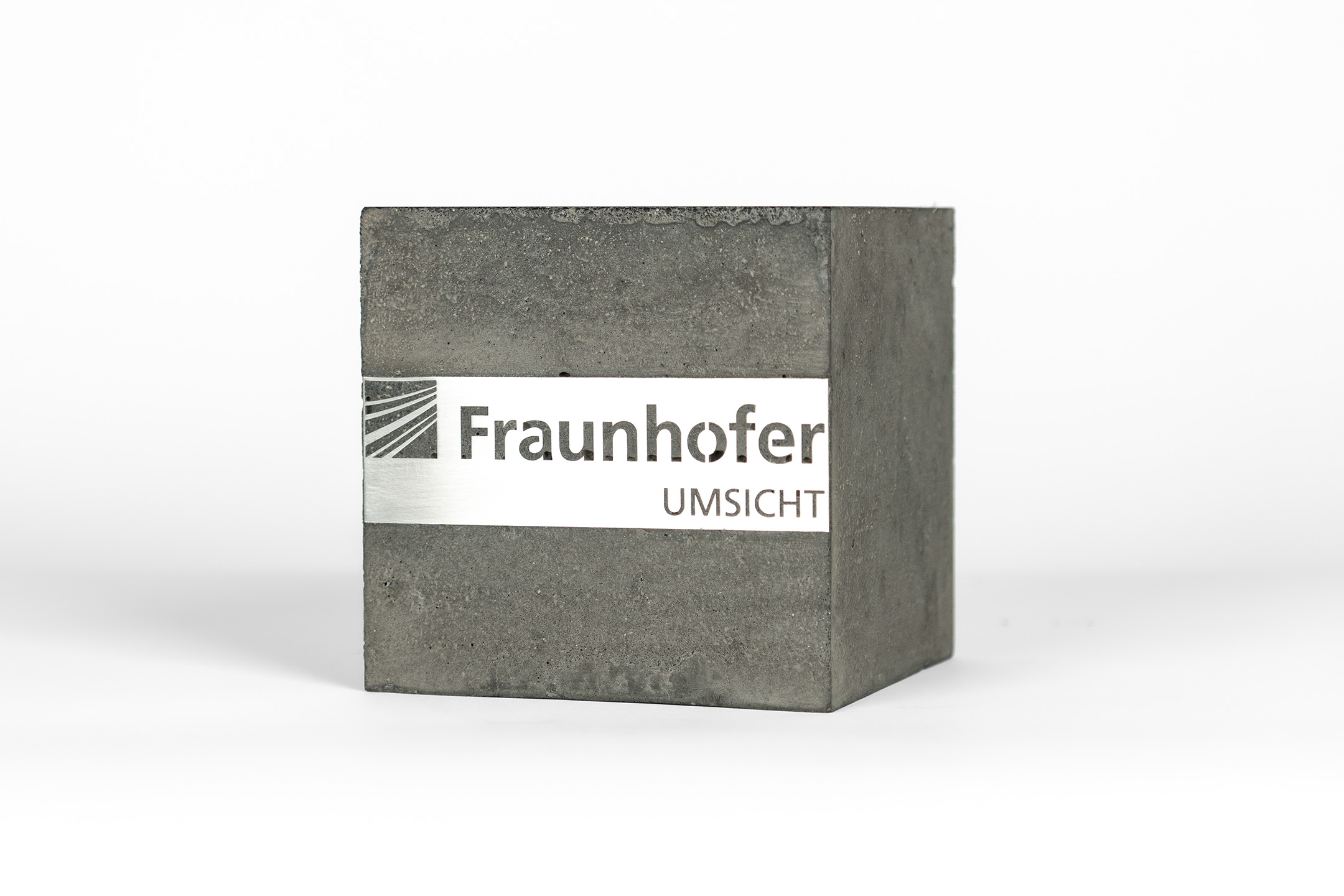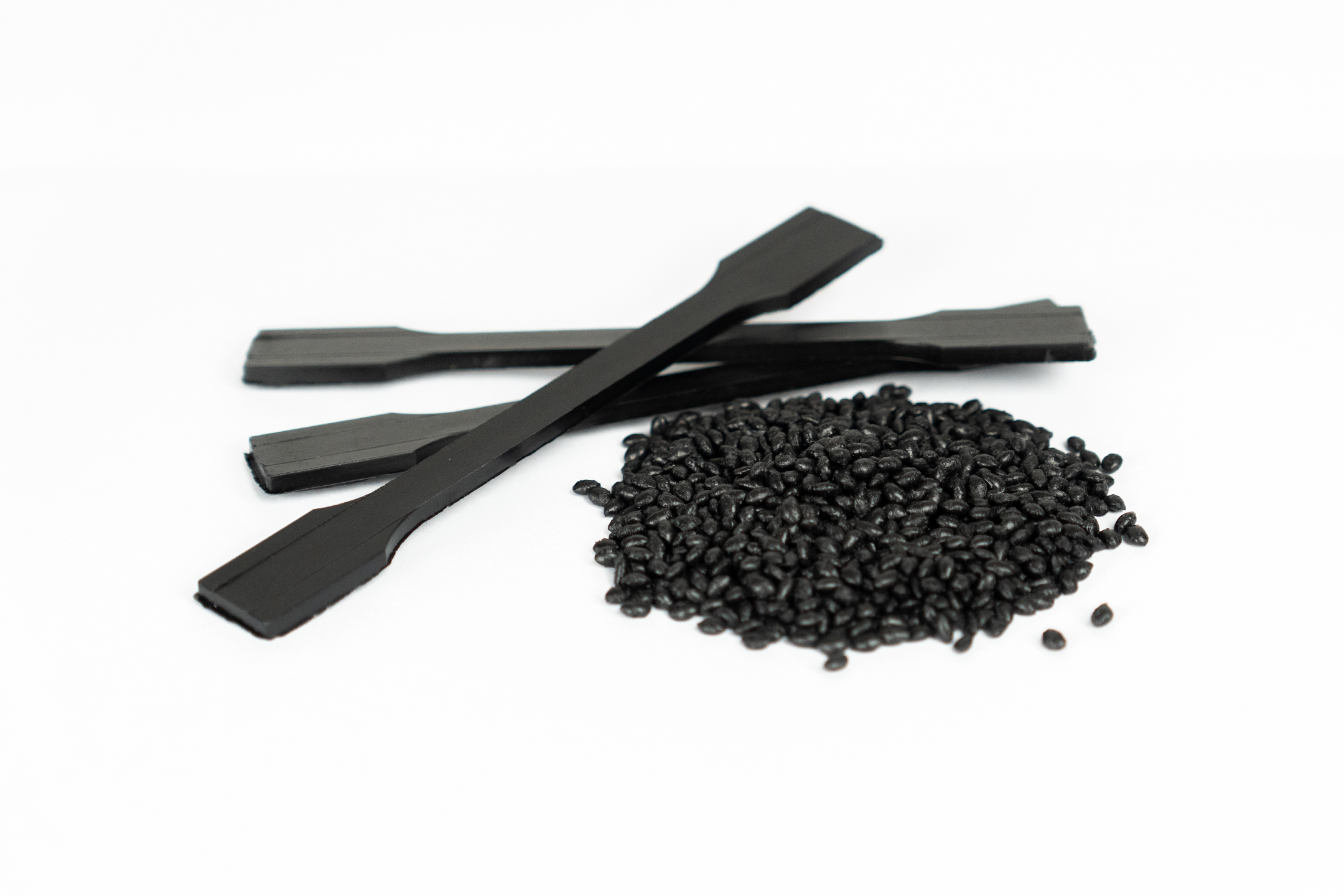Soil applications
Biochar can find application in the agricultural context with the aim of carbon storage combined with soil improvement. Depending on the purpose, the physical and chemical properties of the respective biochar, compliance with limit values in accordance with international guidelines and appropriate certification are important for such an application.
Building and materials
Biochar can be utilised as a filler in concrete, asphalt or plastics to reduce the CO2 footprint of the products or to specifically modify the product properties. Porosity, particle size distribution, adhesion behavior and leaching behavior of pollutants play a major role here. These properties can be modified by targeted processing. We offer various processes for this purpose.
Metallurgy
Coal from fossil sources is an important input material in industry, e.g. in the sintering plant for the production of iron ore agglomerates, in the electric arc furnace as injection or feed coal, or as alloying coal for adjusting the carbon content of the steel. To achieve CO2-neutral steel production, the replacement of fossil coals by biochar plays a major role. Decisive parameters for this are the ash content, the amount of volatile components, the calorific value, the particle size and the reactivity. The selection of suitable feedstocks as well as the process parameters during the conversion of biomass to produce the biochar is therefore crucial.
Thermal utilization
Whether for combustion or gasification of the biochar for the generation of process heat or electricity, the calorific value, the proportion of carbon or the ash content is decisive. Together with you, we evaluate the suitability and, if necessary, optimization of the resulting carbonisates for efficient thermal utilization.
Recovery of recyclable materials
Biomass and biogenic residues partly contain valuable nutrients such as nitrogen, phosphorus or potassium. In the context of landfilling, these are lost for targeted application. By means of pyrolytic conversion, these nutrients can be recovered from the input materials in a targeted manner, either from the biochar itself or from the existing side streams (gas, oil, water), and used further in a targeted manner.


